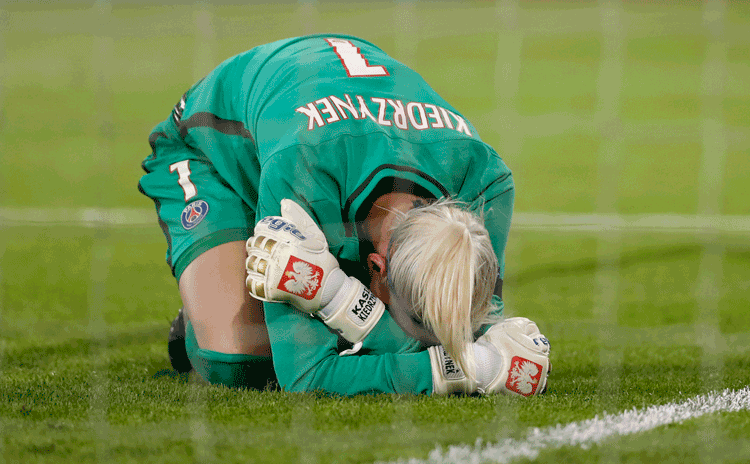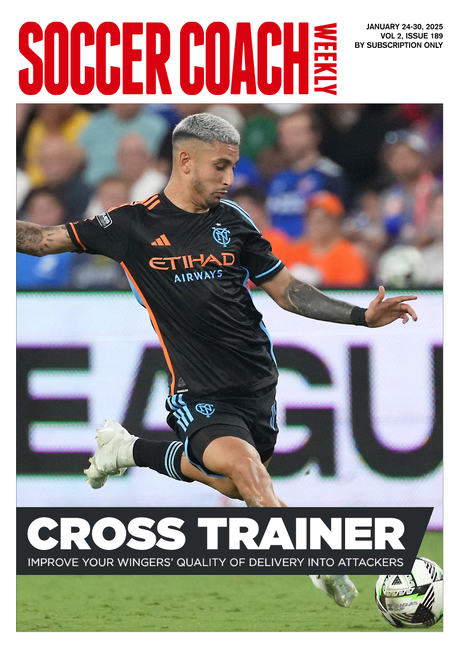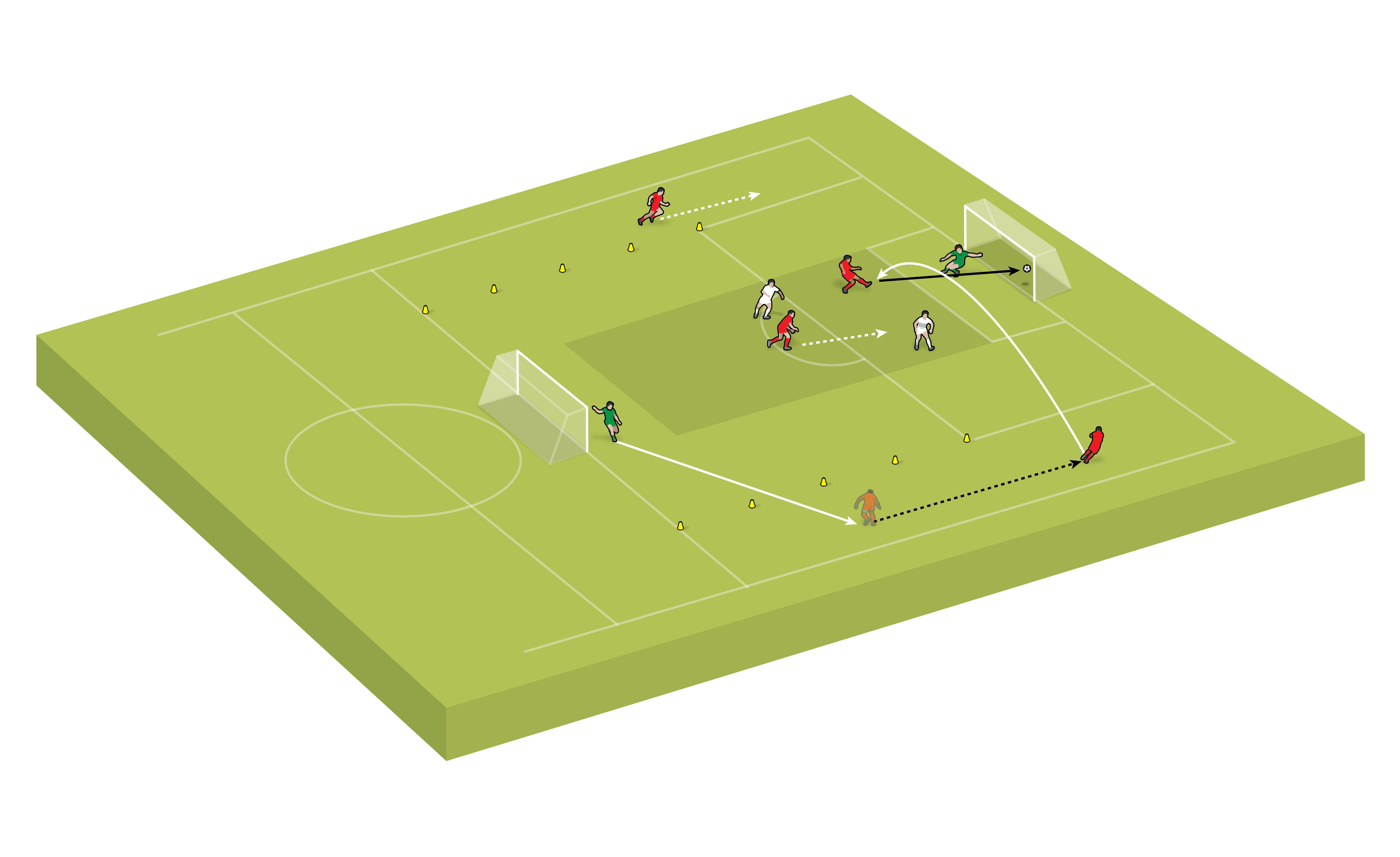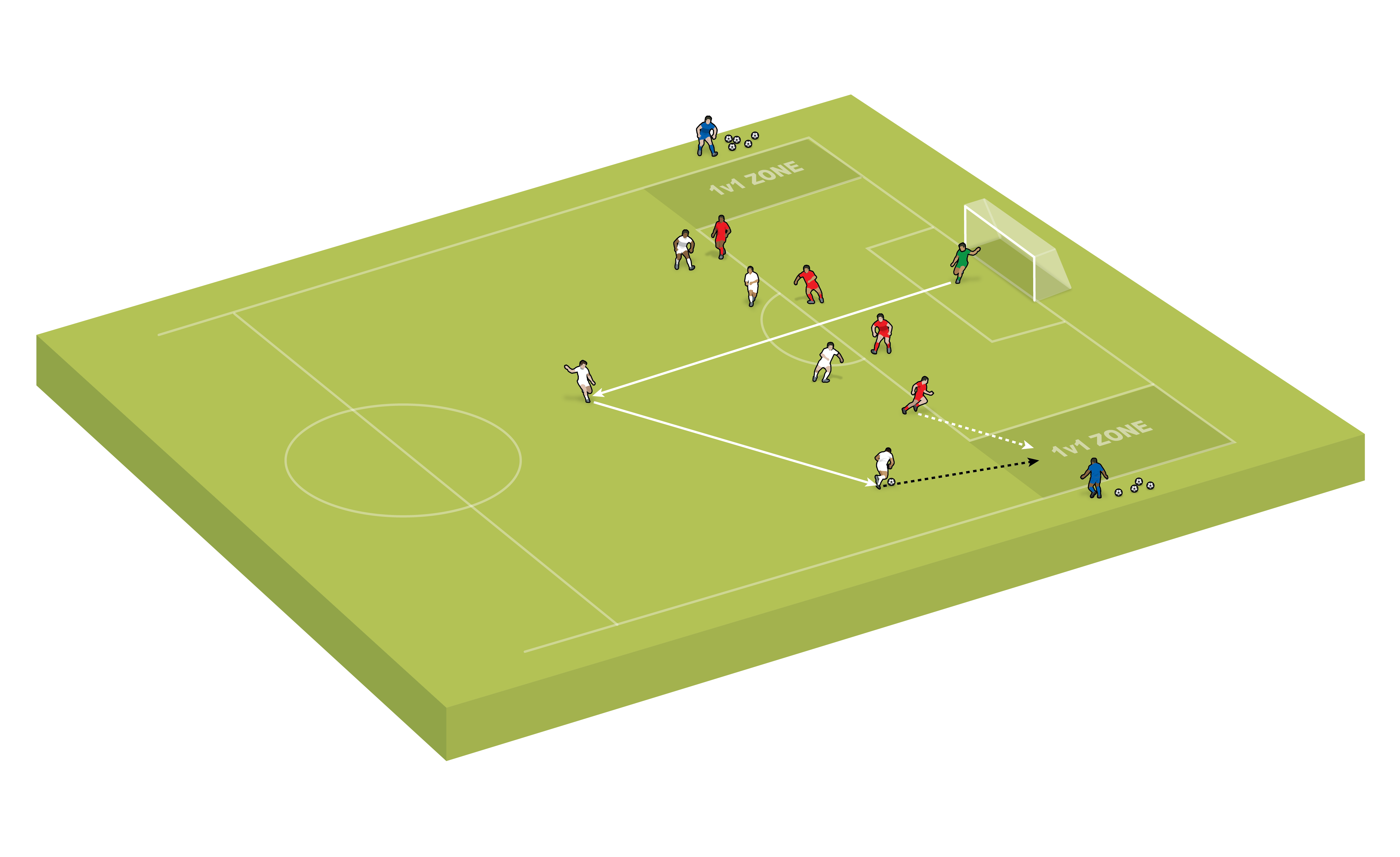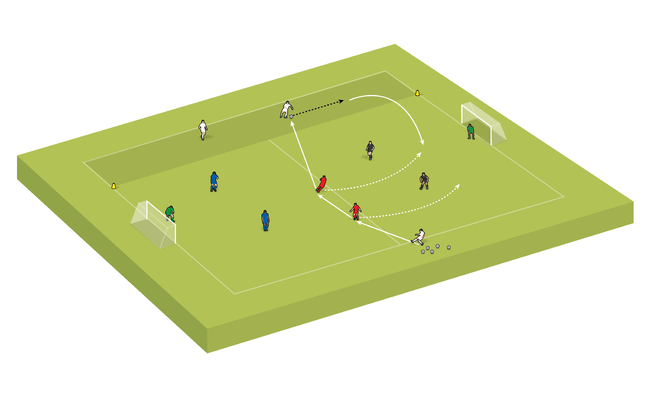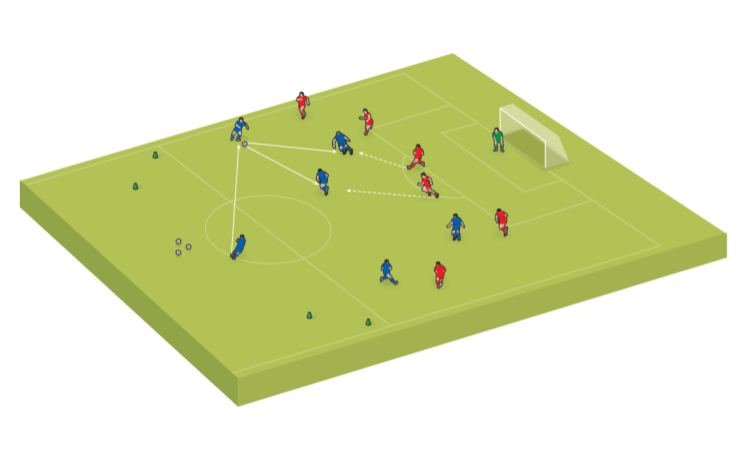Solve your goalkeeper problems
The goalkeeper is often the player that is the most neglected when it comes to training nights yet is one of the most important players on the pitch. Certainly at lots of clubs players take turns to play in goal – I have no problem with that but…
My latest podcast is all about coaching the goalkeeper and has hints and tips to help coaches focus on the correct things. The goalkeeper is often the player that is the most neglected when it comes to training nights yet is one of the most important players on the pitch.
Certainly at lots of clubs players take turns to play in goal – I have no problem with that but if that is the case you need to make sure the players have the basics covered.
Listen to my discussion on Coaching the goalkeeper.
At the younger age groups I have always found it a difficult job filling the position of goalkeeper. I’ve done various things, put my own son in goal, had two goalkeepers so one half they play outfield the other in goal but were never subbed – it helped but didn’t totally solve the problem.
Motivation, confidence and parental opposition are all part of the problem for goalkeepers. Team mates and parents can be very quick to criticise a goalkeeping error, whereas a missed scoring opportunity at the other end might go unmentioned.
To get help talking to parents about their child becoming a goalkeeper listen to my discussion to Get parents onside.
You should do all you can to encourage him or her by making training fun, easy to understand and full of variety.
I always start with some simple sessions to give the goalkeeper some confidence. I swear by my EasiCoach goalkeeping sessions, such as Stop the striker 1v1 (U11-U12 game), which gets the goalkeeper coming off the goal line to smother the ball. For saving skills, try Stopping the ball (U7-U8 activity) and for skills with the feet, which are very important for goalkeepers who come out to support the defence, try Footwork matters most (U11-U14 activity).
You can move on to coaching the goalkeeper in game situations. My favourite sessions are those that keep the goalie involved in the game. A really good fun example is Airball, which has every player using goalkeeping skills so the keeper doesn’t feel like the odd one out. (It can also help you identify any players who could stand in if the keeper is injured or on holiday.)
For older goalkeepers use the session Cover plus – it gets them thinking about positions on the pitch and covering behind the defence when the defenders go missing. I find it one of the best for getting keepers to anticipate when they need to clear the ball.
Finally, for very experienced goalkeepers, use the session Goalkeeper positions. It was designed by Keith Boanas, former head coach of the Estonia women’s team, for a club in Finland that was having trouble with the goalkeeper staying glued to her line.
Coaching the goalkeeper
Get parents onside
Airball
Cover plus
Goalkeeper positions with Keith Boanas part one
Newsletter Sign Up
Coaches Testimonials

Gerald Kearney, Downtown Las Vegas Soccer Club

Paul Butler, Florida, USA

Rick Shields, Springboro, USA

Tony Green, Pierrefonds Titans, Quebec, Canada
Subscribe Today
Discover the simple way to become a more effective, more successful soccer coach
In a recent survey 89% of subscribers said Soccer Coach Weekly makes them more confident, 91% said Soccer Coach Weekly makes them a more effective coach and 93% said Soccer Coach Weekly makes them more inspired.
*includes 3 coaching manuals
Get Weekly Inspiration
All the latest techniques and approaches
Soccer Coach Weekly offers proven and easy to use soccer drills, coaching sessions, practice plans, small-sided games, warm-ups, training tips and advice.
We've been at the cutting edge of soccer coaching since we launched in 2007, creating resources for the grassroots youth coach, following best practice from around the world and insights from the professional game.
